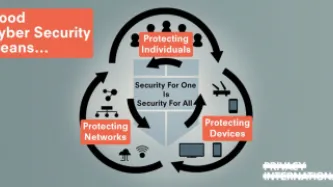Search
Content type: Long Read
When you buy a brand-new low-cost phone, it’s likely to come pre-installed with insecure apps and an outdated operating system. What this means is that you or your loved ones could be left vulnerable to security risks or to having their data exploited. Privacy shouldn’t be a luxury. That’s why we advocate for companies to provide the latest security features and privacy protections for both low- and high-cost phones.
Content type: News & Analysis
There are three good reasons why security is so hard for NGOs. First, we are afraid to speak about meaningful security. Second, we focus on the wrong areas of security and in turn spend money and prioritise the wrong things. Third, we struggle to separate the world we want from the worlds we build within our own organisations. At PI we have failed and struggled with each of these for over 20 years. Out of exhaustion, we decided to do something about it: we are building an open framework, a…
Content type: News & Analysis
The short answer is yes.
I'm sure many of you have seen people with stickers over their webcams and wondered why (probably writing that person off as paranoid). But it's well known in tech circles that a camera in a computer or smartphone can be turned on remotely by an attacker with the resources, time, and motivation.
Security is hard, and our defences are weak. The capability of an adversary to attack your devices doesn't necessarily hinge upon a consumer choice of…
Content type: News & Analysis
Technologists hoped the “Crypto Wars” of the 1990s – which ended with cryptographers gaining the right to legally develop strong encryption that governments could not break – was behind them once and for all. Encryption is a fundamental part of our modern life, heavily relied on by everything from online banking and online shopping services to the security our energy infrastructure.
However, from comments by the French and German governments about creating a European initiative to circumvent…



